A few months ago, I talked to Psychaudio who is a local amplifier designer, about building a device that will take an unbalanced signal, and create a balanced signal to feed to balanced amplifiers. This will make it easier for people who wants to have balanced drive on their headphones, but not owning a true balanced source.
Although a lot of people would object to this method, after the release of the Protector, we can definitely see that the improvements gained from having balanced drive is very noticeable even from if you have an unbalanced source.
Enter the Soul Drive, which utilizes a Burr Brown DRV134 chip to do the unbalanced to balanced conversion. As quoted from the DRV134 datasheet page:
The DRV134 and DRV135 are differential output amplifiers that convert a single-ended input to a balanced output pair. These balanced audio drivers consist of high performance op amps with on-chip precision resistors. They are fully specified for high performance audio applications and have excellent ac specifications, including low distortion (0.0005% at 1kHz) and high slew rate (15V/µs).
These are some pre-launch photos of the Soul Drive:
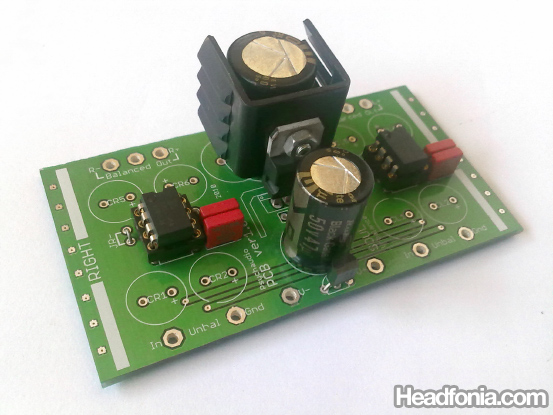
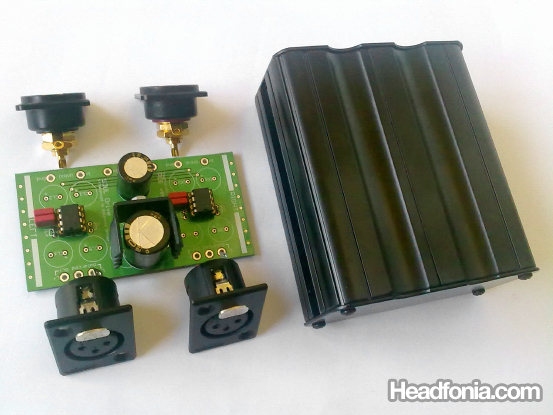
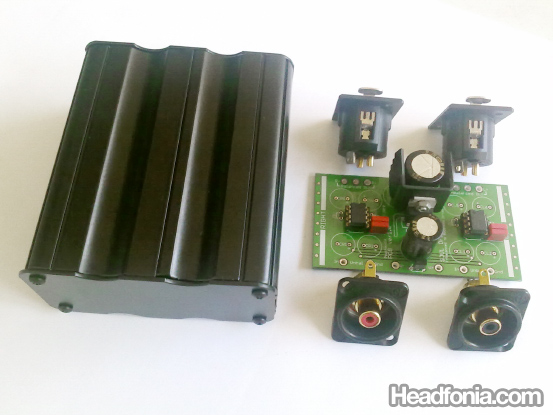
The capacitors are for the power supply, and there is no capacitors used in the signal path. Since the Soul Drive is an active device, it requires a 12V wallwart for operational.
I personally haven’t tested the Soul Drive, but a prototype unit is out and the early testers have been saying good things about it.
Stay in tune!







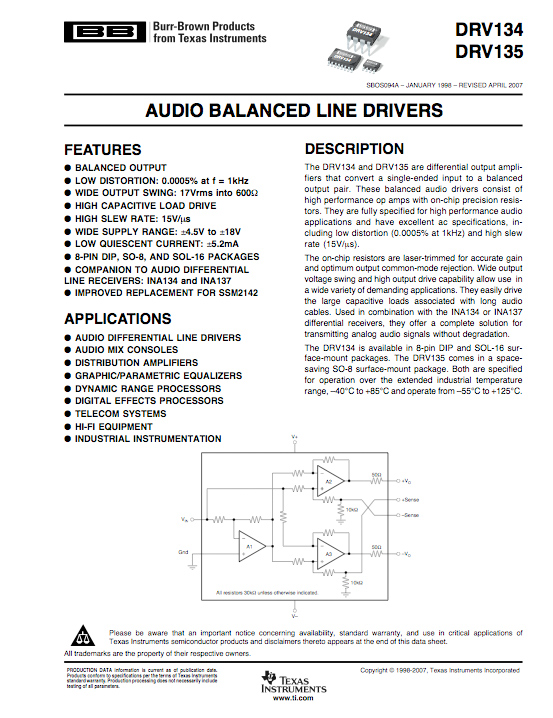
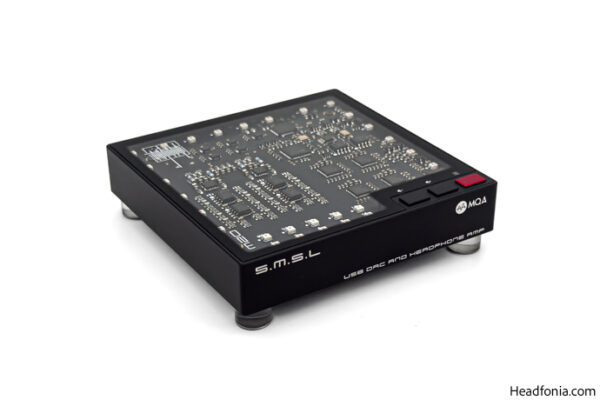
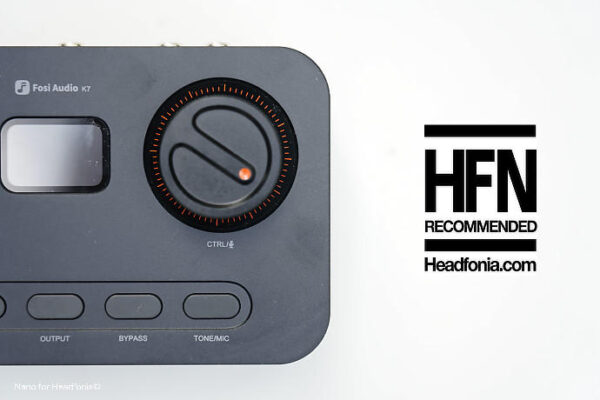
direcow
wow, any chance this will be available for purchase?
Mike
Hi, I've just created a thread for that purpose.
http://www.headfonia.com/bbpress/topic.php?id=13#…
Earfonia
Besides for acting as buffer for impedance matching, or when ground loop problem occur, I don't see the need of active component for connecting unbalance output to balance input.
Can anyone hear any improvement using this active component compared to the normal passive way of connecting unbalance output to balance input?
Usually this is how I connect unbalance output to balance input:
Source Left output (+) –> Amp Left + input (hot)
Source ground –> Amp Left – input (cold)
Source Right output (+) –> Amp Right + input (hot)
Source ground –> Amp Right – input (cold)
I normally don't connect the source ground to the balanced input ground.
psychaudio
Well sir, those connections will surely work, but it will defeat the benefits of balanced signal itself, where in a balanced signal the – (inverting) signal is an exact opposite of the + (non-inverting) signal, the electromagnetic fields are canceled out by the equal and opposite currents, thus removing any noise picked up along the way 😉
Earfonia
Yes, that's right, especially if the length of the connection is significant, then placing Soul Drive near to the source would reduced a lot of interference 😀
psychaudio
True 😉
And since we talk about balanced driven headphones…
Putting a ground signal at the amplifier's inverting input, will make the headphones driven by a non-inverting signal and an active ground signal (since the inverting amplifier only acts as a ground follower this way), so the headphones is actually not driven by a balanced signal 😉
Juan
Good, cheap and ease:
http://www.thomann.de/es/art_dti.htm
http://www.artproaudio.com/products.asp?type=90&a…
Mike
Thanks for the links, Juan!
Andy
Where would this fit in the signal path? DAC -> Converter -> Amp, or DAC -> Amp -> Converter?
Anonymous
DAC > Converter > Amp.
Andy
That’s kind of a shame, it’d mean that if you only have a DAC/Amp combo box you couldn’t use it.
Anonymous
That’s true.
I don’t think it’s absolutely necessary though. I’m not so big on balanced drive as I was before.